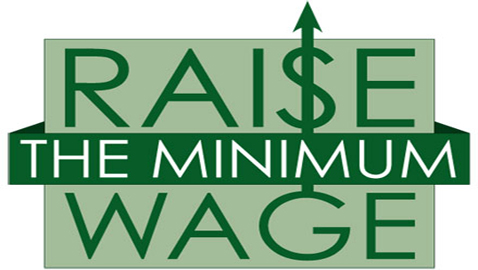Will Increasing The Minimum Wage Make Life Better Than What It Was Four Years Ago?
Post Views 2
On that score, the Obama campaign has something to cheer, since the unemployment rate, for the first time since the President took over has come below 8 and is currently 7.8 percent.
But not all jobs are the same. Can you equate a job that earns a 7 figure salary with one that earns a barely livable wage? 60 percent of the jobs lost during the recession were middle class jobs earning mid-wage remuneration. However, the jobs that have come back are low-wage jobs. Statistics show that of the jobs that have returned and created a rosy unemployment picture, 58-percent are low-wage jobs. These are jobs that pay a minimum wage, or thereabouts.
The numbers show that there is an increase of low-wage earners, but is the minimum wage that they are paid, enough for them to subsist on?
Last summer the government proposed a Fair Minimum Wage Act, a bill that is being discussed a lot, but is awaiting clearance. If it does manage to clear political considerations it will appreciably impact millions of American lives. The bill proposes to increase the minimum wage from $7.25 to $9.80.
The minimum wage has had a slow but steady journey. From 25 cents an hour, at its genesis in 1938, it has risen to $7.25 an hour or $15,080 a year for those fortunate to be employed full-time. The annual $15,080 which a full-time minimum wage worker stands to earn is below the poverty level for a two-person household.
The problem is that even though there is an increase in the number of dollars, it has not increased in value in buying terms, as inflation has always outpaced it. Workers get more but can buy less and less with it.
While the minimum wage is barely enough, investigations have shown that such workers are exploited and are underpaid by their employers, many were made to work more than the hours they were paid for and many were underpaid for overtime work done by them.
Proponents of the need to increase the minimum wage say that it will help eradicate debt and poverty and ensure that the poor American workers will have money to pay for the basic necessities like housing, food, transportation to work and health care.
A higher wage will not only benefit the individual but also boost the economy. More money will mean increased consumer spending. Additionally, this new consumer spending would create an anticipated 100,000 new full-time jobs.
Since the minimum wage is perceived as the base number from which wages are calculated, wages for all earning more than the minimum wage would also increase, with the benefits percolating down to the economy.
However, the opponent of increasing the minimum wage argue that it should not be raised nor should it be indexed to inflation, saying that it will increase the burden on the employers and many would be forced to close down their establishments. Others would have to cut down jobs to stay financially viable.
Though President Obama has promised to raise the minimum wage, most Republicans will oppose it saying that the economy is too fragile to risk it.
All things considered, and polls show that 70 percent of American agree with this, it appears that raising the minimum wage will help the worker and boost the economy in these unsure times.
Will Increasing The Minimum Wage Make Life Better Than What It Was Four Years Ago? by Harrison Barnes


 US Dollar Gaining Momentum
US Dollar Gaining Momentum  November Posts Another Strong Job Report
November Posts Another Strong Job Report  2006-2015 Median Weekly Earnings of Full-Time Workers in the United States
2006-2015 Median Weekly Earnings of Full-Time Workers in the United States